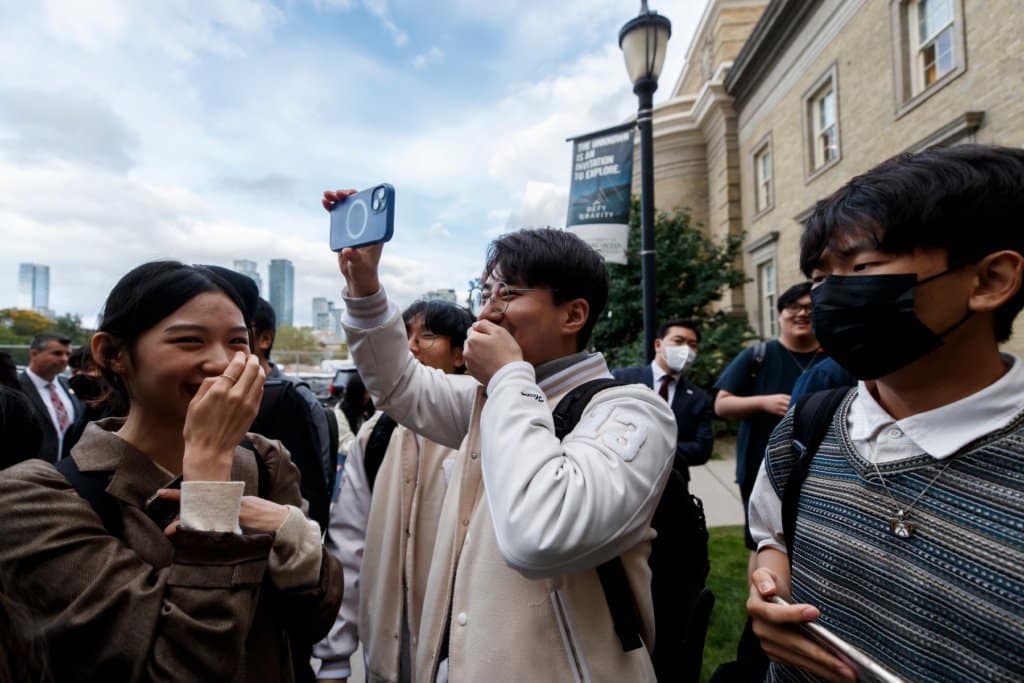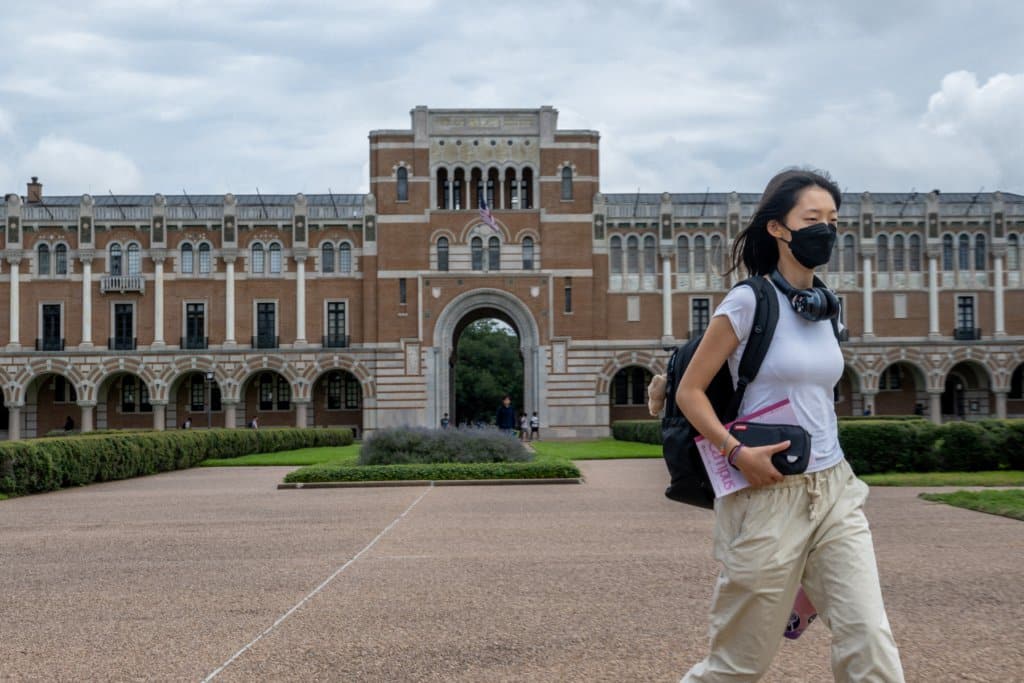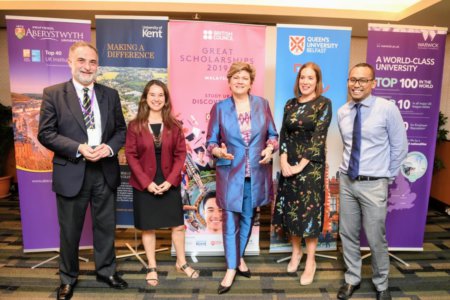
With the US dollar growing stronger and the currencies of Nigeria, India, and Malaysia weakening, studying abroad is starting to get even more expensive.
Yet, it’s not entirely out of reach. Scholarships are not the only way to pay your tuition and living expenses — there are other forms of financial aid too.
It can be difficult at first to know where to look for financial aid, especially if you didn’t secure any conventional scholarships. Or maybe you have won a scholarship, but it only covers your tuition fees or rent.
Knowing where to look can help you fill these gaps. Here’s a list of alternative financial aid options for international students:

Life’s a fair if you manage to land one of these alternative financial aid options. Source: Mario Tama/Getty Images/AFP
1. Student loans
International students are not eligible for federal or state student aid programmes in the US. But those who can get a credit-worthy US citizen or Permanent Resident (PR) as a cosigner might be eligible for a private alternative student loan. Refer to this site for more information.
International students in Canada can apply for student loans via the Canadian Student Financial Assistance Programme. Bank loans are also available for those who don’t wish to restrict themselves to CSFAP, which is mostly open to those from middle or low-income backgrounds. Take note, though that most Canadian banks only offer such loans to students who have become Canadian PRs or citizens.
Over in the UK, international students won’t be able to enjoy the same benefits home students do. Since the UK exited the EU, even students from the EU can no longer apply for student loans such as tuition fee loans and maintenance loans. Presently, all EU and non-EU students can only apply for university-based student loan schemes.
Universities are allowed to establish their own student loan schemes for talented students. You can check with your institution of choice about your options through their website or by emailing them.

Students react after meeting South Korean President Yoon Suk-yeol as he arrived at the University of Toronto before attending an event on campus on Sept. 22, 2022 in Toronto. Source: Cole Burston/AFP
2. Grants
Didn’t get a full scholarship? Don’t give up. You can still try your luck with partial scholarships or grants. Private grants are an alternative resource of financial aid. In the UK, there are companies or non-governmental organisations (NGOs) that are willing and ready to finance your education.
To obtain such a grant, you will need to take the initiative to do your own research and find out if the company has requirements — a bond period where you will have to work for them, for example. Either way, it’s a win-win situation. You get to experience studying abroad, then you’ll have the once-in-a-lifetime chance to secure a full-time job upon completing your studies without the hassle of applying for visas or looking for openings yourself.
If you’re interested in studying in the US, you should look for alternative financial aid in the following areas: subject-based grants, grants based on your country of origin, hardship funds, or grants provided by charities or official bodies.
Grants for international students in the US are coveted and competitive, so be prepared to put in extra effort when submitting that application. Apply as early as possible (18 months if possible!) for as many as you can — you do not want to put all your eggs into one basket.

Every year, thousands of international students compete for alternative financial aid. Source: Brandon Bell/Getty Images North America/Getty Images via AFP
3. Bursaries
Bursaries are a form of alternative financial aid offered by universities and colleges for international students. This type of financial aid is given to students based on need rather than merit or accomplishments. Some institutions also offer bursaries if your parent or sibling is a graduate or if you’ve previously studied there (short-term programmes like summer school or exchange stint included).
These are usually one-time payments that don’t need to be repaid and are provided by nonprofit foundations or private companies. Many aim to help international students with the substantial cost of moving far from home to study.
To apply, students need to submit an application, undergo a needs assessment where they must provide proof of their financial need, and demonstrate why they deserve the funding.










